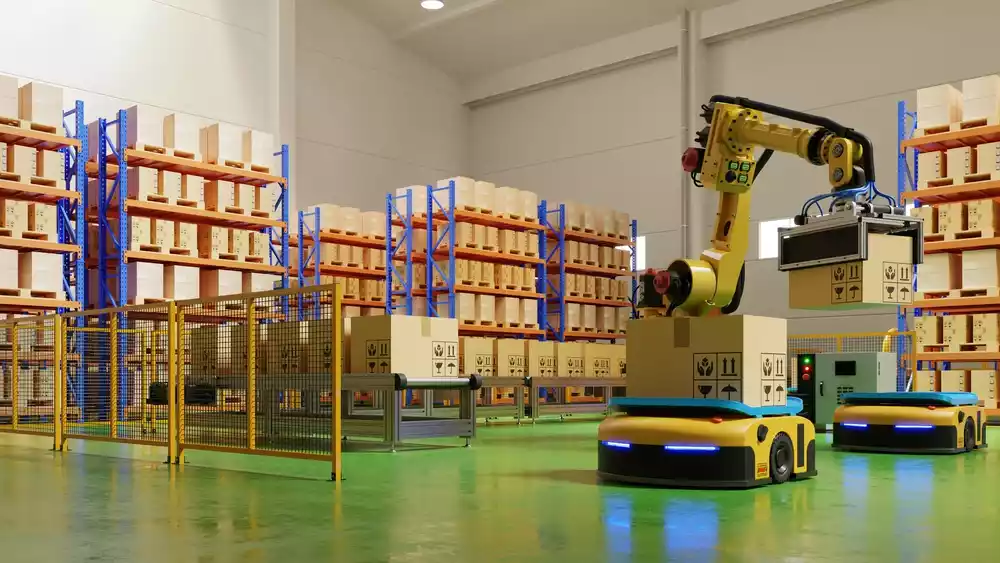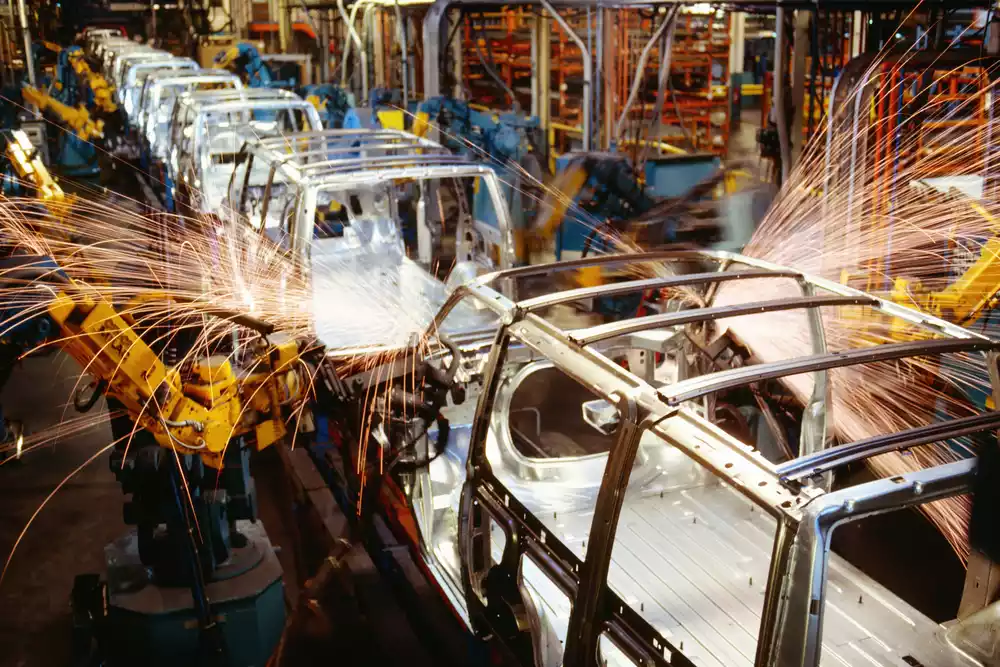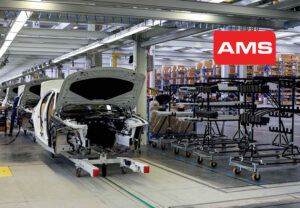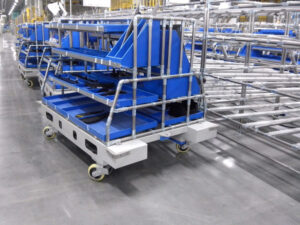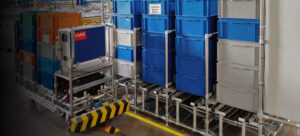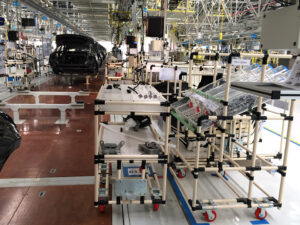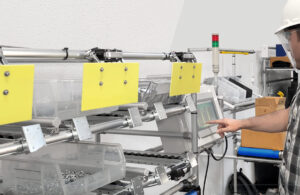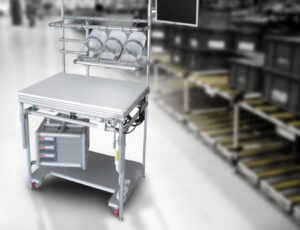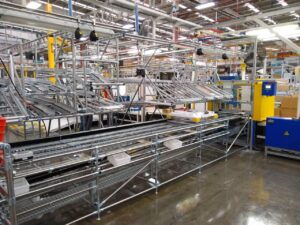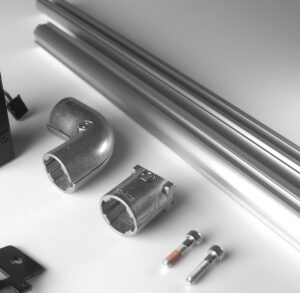Blog
- Home
- Technology
- The Significance of Industrial Automation: Enhancing Manufacturing Efficiency and Sustainability
The Significance of Industrial Automation: Enhancing Manufacturing Efficiency and Sustainability
Table of contents
The significance of industrial automation: Enhancing manufacturing efficiency and sustainability
In the realm of modern manufacturing, industrial automation stands as a cornerstone of efficiency and productivity. It revolutionizes traditional production processes by integrating advanced technologies like robotics, artificial intelligence, and machine learning. These innovations streamline operations, enhance precision, and reduce the margin of error, ultimately leading to higher output quality.
Industries worldwide are embracing automation to stay competitive in today’s fast-paced market landscape. By automating repetitive tasks and optimizing workflows, companies can achieve cost savings, accelerate time-to-market, and improve overall operational performance. As businesses continue to adopt automation solutions, the future of industrial production appears increasingly agile, adaptive, and driven by cutting-edge technological advancements.
The evolution of industrial automation
The Early Days of Automation
In the early days of industrial automation, the focus was primarily on repetitive tasks that could be mechanized to increase efficiency and reduce manual labor. Assembly machines started to play a key role in automating workflows, particularly in manufacturing processes where the need for consistency and precision was paramount. This era marked the beginning of a shift towards using machinery to perform tasks that were previously done by hand, laying the groundwork for the widespread adoption of automation in various industries.
The Technological Revolution
The technological revolution in industrial automation brought significant advancements in robotics, artificial intelligence, and machine learning. These technologies revolutionized the way tasks were performed in manufacturing plants, warehouses, and other industrial settings. Robotics, in particular, enabled the automation of complex processes that required dexterity and flexibility, leading to greater efficiency and higher production capacities.
Artificial intelligence and machine learning further enhanced automation by enabling machines to learn from data, adapt to changing environments, and make decisions based on real-time information. This integration of intelligent technologies into industrial automation systems improved decision-making processes, minimized errors, and optimized operations for maximum output.
With the continuous evolution of industrial automation technologies, businesses are poised to achieve new levels of efficiency, productivity, and competitiveness in the global market. The seamless integration of automation solutions is driving industries towards a future where innovation and efficiency go hand in hand, shaping the landscape of industrial production for years to come.
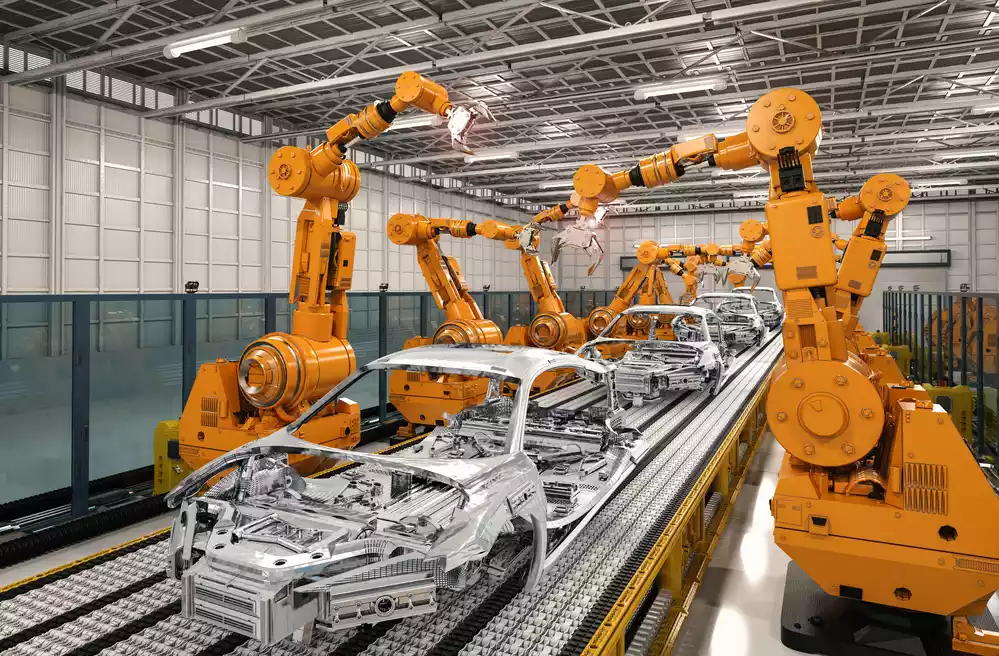
Key components of industrial automation
Sensors and Feedback Systems
Sensors and feedback systems are essential components of industrial automation, enabling machines to perceive and respond to their environment accurately and swiftly. These systems play a crucial role in providing real-time data on various parameters such as temperature, pressure, position, and speed, allowing for precise control and monitoring of industrial processes. By integrating sensors and feedback systems, assembly machines can adjust their operations dynamically, ensuring optimal performance and quality in manufacturing tasks.
Programmable Logic Controllers (PLCs)
Programmable Logic Controllers (PLCs) serve as the brains behind industrial automation systems, managing and controlling the operation of machinery and processes. These specialized computers are programmed to execute specific tasks and sequences, overseeing the coordination of various components within assembly machines. PLCs streamline workflow automation by interpreting input signals from sensors, making decisions based on predefined logic, and generating output commands to drive the desired actions. Their flexibility and reliability make PLCs indispensable in modern manufacturing environments, where precision and efficiency are paramount.
Robotics and AI in Manufacturing
The integration of robotics and Artificial Intelligence (AI) in manufacturing has revolutionized industrial automation, ushering in a new era of advanced productivity and efficiency. Robotics systems work in tandem with AI algorithms to perform complex tasks with speed, accuracy, and adaptability, enhancing the capabilities of assembly machines in various production settings. AI-powered robots can learn from experience, optimize processes, and make intelligent decisions autonomously, leading to improved operational efficiency and product quality. By harnessing the power of robotics and AI, manufacturers can achieve unprecedented levels of automation and innovation, driving their competitiveness and success in the evolving industrial landscape.
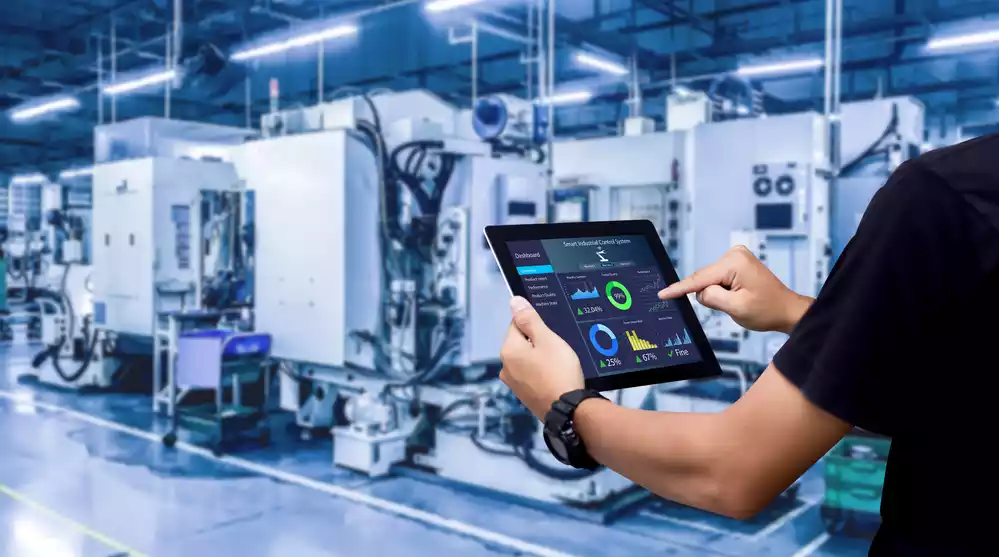
Benefits of industrial automation
Increased Productivity and Efficiency
Industrial automation, with its integration of advanced technologies like robotics and artificial intelligence, significantly enhances productivity and efficiency in manufacturing processes. By automating repetitive tasks and streamlining workflows, companies can achieve higher output rates with improved accuracy and consistency. Assembly machines, a crucial component of industrial automation, play a key role in increasing productivity by reducing human intervention and minimizing errors. This leads to optimized production schedules, lower operational costs, and faster time-to-market for products.
Improved Safety and Quality Control
One of the primary benefits of industrial automation is the improved safety and quality control it offers in manufacturing environments. Automation systems, including sensors and feedback mechanisms, enable real-time data monitoring to detect faults or anomalies promptly. This proactive approach helps in preventing accidents, ensuring worker safety, and maintaining high product quality standards. Additionally, assembly machines integrated into automated processes ensure precise assembly of components, reducing defects and rework, thereby enhancing overall product quality and customer satisfaction.
Sustainability and Energy Savings
Industrial automation plays a significant role in promoting sustainability and achieving energy savings within manufacturing operations. By optimizing resource utilization and reducing waste through precise control and monitoring, automation systems contribute to eco-friendly production processes. Assembly machines operating as part of automated workflows are designed to minimize energy consumption while maximizing output. This approach not only reduces the carbon footprint of manufacturing facilities but also leads to cost savings through improved energy efficiency and resource management.
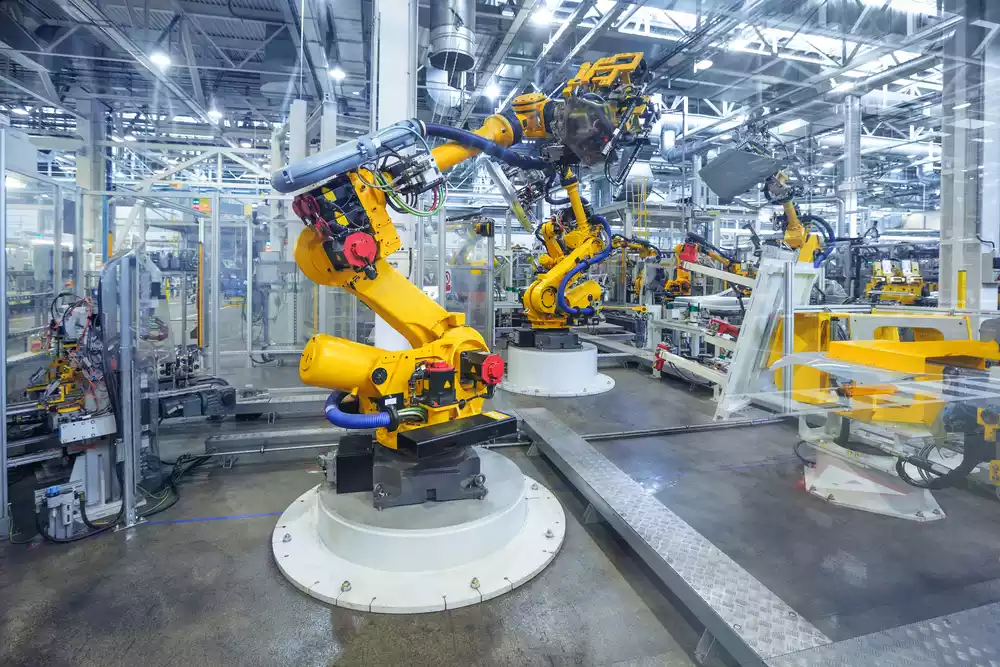
Implementation challenges and considerations
Initial Investment Costs
When considering the implementation of industrial automation, one crucial aspect to address is the initial investment costs involved. The adoption of assembly machines and advanced technologies such as robotics requires a significant financial commitment. Companies need to allocate funds for purchasing the necessary hardware, software, and infrastructure to set up automated systems. Additionally, costs associated with training employees to operate and maintain these systems should be factored in. Despite the substantial upfront costs, organizations stand to benefit from long-term savings and increased productivity once the automation processes are fully operational.
Worker Displacement and Retraining
The integration of industrial automation can lead to concerns about worker displacement and the need for employee retraining. As tasks that were previously performed manually become automated, there may be a shift in the workforce structure. Some roles may become redundant, requiring companies to make decisions regarding workforce adjustments. It’s essential for organizations to proactively address these challenges by providing opportunities for reskilling and upskilling employees to take on more advanced roles within the automated production environment. By investing in training programs and supporting employees through this transition, companies can mitigate the impact of worker displacement and ensure a smooth transition to an automated workflow.
Integration with Existing Systems
Another critical consideration when implementing industrial automation is the seamless integration of new automated systems with existing infrastructure. Compatibility issues between legacy systems and new technologies can pose challenges during the integration process. Companies need to conduct thorough assessments of their current systems and workflows to identify potential bottlenecks or compatibility issues that may arise. By ensuring that the new automation solutions can effectively communicate and operate in conjunction with existing machinery and software, organizations can minimize disruptions and maximize the benefits of automation. Implementing robust integration strategies and engaging with experienced automation providers can help streamline the integration process and optimize the overall efficiency of the automated production environment.
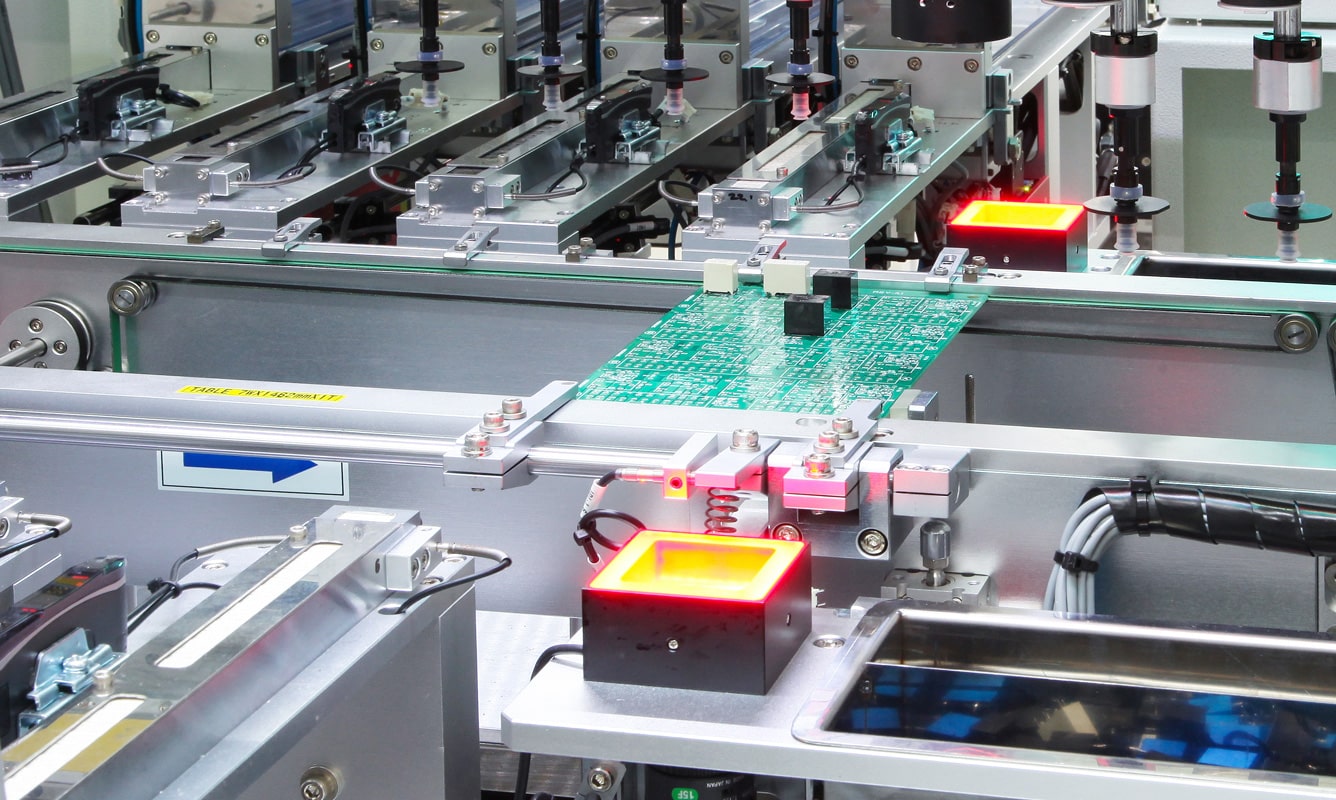
Elevate your manufacturingefficiency with industrial automation
The significance of industrial automation cannot be overstated in today’s competitive landscape. It plays a crucial role in enhancing manufacturing efficiency and sustainability. At AMS, Inc, we understand the importance of staying ahead in automation technologies. If you’re ready to take your operations to the next level, our team is here to assist you. With our cutting-edge automated solutions and expert guidance, we can empower your business for success. Explore how AMS, Inc can revolutionize your manufacturing processes and drive growth.
We look beyond the scope to surpass your expectations
We understand the importance of retaining a strong working relationship with our customers. AMS provides a niche for everyone through excellent customer care and top-rank products.

